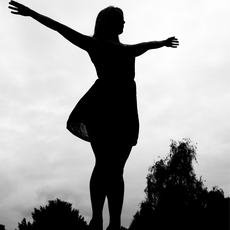|
From a very early age, my belief about what it means to forgive had been taught to me based on the religious dogma I was raised with.
I can only speak for myself when I say I was taught that forgiveness means thinking about another person who has wronged you and finding a way to be OK with what they did. I now have a more enlightened understanding of what forgiveness means; an expanded knowledge of what it means to forgive. Forgiveness isn't about finding a way to make it OK for whatever the person chose to inflict on you, forgiveness is about allowing yourself to let go of the negative feelings and emotions that are keeping you mired in the negativity as well as continually being triggered by the feelings and emotions each time you think about the experience. I recently posted on social media about the death of my father. Here is that post: My Father Died Today I have no tears, no sadness, no feelings of loss but neither do I feel relief. As I sit here and ask myself what I’m feeling, the only answer that feels genuine is “completion”. Every ending creates a new beginning, so what happens next? If I were to stand up and talk about who my father was and how I will remember him, what would I say to explain my feelings of completion? The man who was my father was known for many things; son, brother, uncle, father, husband, ex-husband, stepfather and grandfather. Our family knew him as angry, unapologetic, violent, tormentor, sadistic, abusive, sexual predator, pedophile, sex addict, sadist. His unapologetic lifestyle choices has left hidden scars that each of us has dealt with in our own way. Scars that have torn a family apart out of anger, shame, denial, self-doubt, self-loathing, revulsion, choosing sides, blame and judgment; towards each other as well as ourselves. My younger self tried, I tried to be the protector, but I was too young, too small, too weak, and too afraid. And then I got older, and I stopped being afraid. I stopped being afraid of the threats, the fear of retribution and what others would say when they found out. I stopped putting the wants and needs of others before my own. I started to speak up, I started to share my story, and I realized by sharing my story I was gradually shifting from victim to victor. I quickly learned that sharing my story meant there are going to be people who are empowered by my story, enraged by my story, and even disbelieve my story. The disbelievers became angry and judgmental which left me with two choices; I could once more choose to remain silent or I could choose to stand in my power. But how does a person stand in their power against the disbelievers, or the angry and judgmental people? How do you stand in your power and stand up for yourself when those around you are telling you you’re wrong to be talking about something they don’t want to hear about? In my experience, the best way to stand in your power is to understand that the people who are judging you, the people who are angry with you, and the people who disbelieve your story are the people who realize your story makes them uncomfortable because it hits too close to home for them to hear. To accept what I’m saying would mean they would have to take a look at their own choices. They would have to ask themselves if there were signs that they saw but ignored either out of social diplomacy or ignorance. There is nothing left unsaid, there is nothing left undone, and that is why what I am feeling today, more than anything, is completion. Being treated better started with me. I had to learn to stop the self-loathing and self-judging and learn to be self-loving. Forgiveness started with me forgiving myself for not seeing my value. For me, forgiveness of "self" led to completion. Nancy Mueller ~ Life Sensei
0 Comments
Leave a Reply. |
AuthorNancy Mueller ~ Life Sensei Archives
April 2024
Categories |

 RSS Feed
RSS Feed
